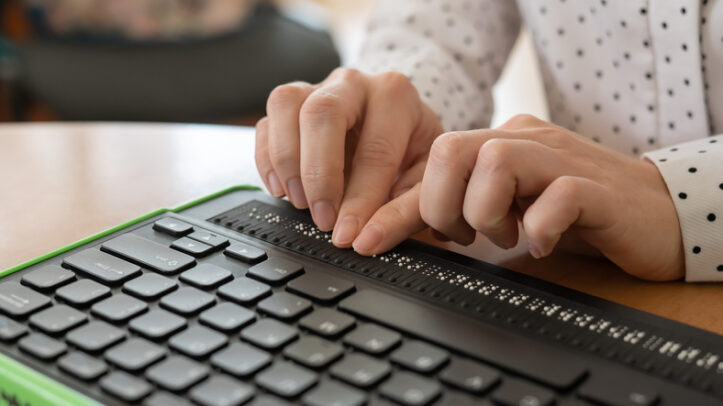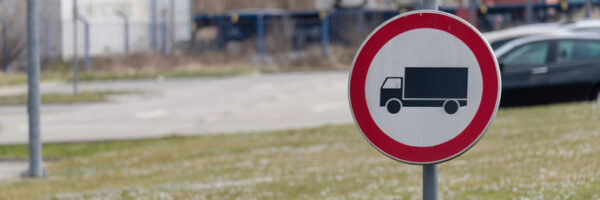
Yes, People Who Are Blind Can Be Software Engineers
In a chat with Yooha Cha, a Ph.D. student studying Informatics at UC Irvine, Cha talks about the increased ignorance in the attitude of people toward those who are physically challenged. Cha says that sighted software developers patronizingly mention that software development is not something that blind people can do.
Yet another instance is that of Kelly Dickenson, a master’s student in Informatics at UC Irvine. Dickenson encountered similar perceptions from people with regard to the role of technology in assisting parents in helping their children with disabilities. However, after going through the YouTube videos crafted by blind parents, Dickenson is dumbfounded and refers to these as effective “life hackers” that could completely redefine the language of parenting.
In a nutshell, students at UC Irvine, like Cha and Dickenson, study the technological and social problems that stand as stumbling blocks in the lives of people with disabilities. They focus on accomplishing the objective by conducting studies through UC Irvine’s Accessibility Research Collective (ARC).
Let’s understand ARC in detail in the upcoming section.
The Accessibility Research Collective
Located in UCI’s Department of Informatics and funded by National Science Foundation, Toyota, Microsoft, and a UCI Chancellor’s Inclusive Excellence Award, ARC focuses on bringing together people of different capabilities. It focuses on bridging the gap between the applications of technology and the social side of it impacting people with disabilities.
Co-founder of ARC, Stacey Branham, stresses the importance of understanding the social aspects alongside technological accessibility when taking the initiative towards helping physically challenged persons. Branham is an associate professor of Informatics at the Donald Bren School of Information and Computer Sciences (ICS) and deeply understands the close nexus between technology and the associated social impact. She mentions that similar to the perception that blind people can’t be great parents, there’s also a notion that they can’t excel in technology and research.
Branham says that ARC is an amazing initiative to let scholars gather and collectively find ways to tackle the problems surrounding disabilities and technology. It fosters the mutual sharing of ideas and lets the members build a stronger research platform toward achieving greater impact. Branham mentions that ARC focuses on centering the attention on disability studies, similar to dedicated research areas like African American Studies or Women’s Studies. The disability studies will relate to the context of society, culture, and politics.
ARC’s Outreach
Member researchers of ARC schedule and meet on a weekly basis to discuss and share their approaches toward crafting accessible and assistive technologies. Besides Cha and Dickenson, several other researchers also form a part of ARC. Some of them are:
Taslima Akter, a Ph.D. student studying the applications of teleconferencing tools like Zoom to help blind people.
Vitica Arnold, a Ph.D. student, understands the role of technology in enabling disabled persons to manage their everyday life.
Cameron Cassidy, a Ph.D. student exploring the possibilities of how blind parents read out books to their children.
Emory Edwards, a recent Ph.D. student studying the use of alt text in images used by Google and social media channels like Discord.
Isabela Figueira, a Ph.D. student, understands how older adults try to learn new phones and their applications.
Xinru Tang is a Ph.D. student focusing on studying how deaf people learn to use accessibility attributes on social media.
Alyson Yin, a Master’s student, studying the user experience of PDFs based on research publications from the standpoint of blind people.
In addition to conducting the research, the members are sharing their experiences and taking steps toward educating the community at large.
Branham says,” There’s an emphasis on volunteering, education, and giving back,”; she further mentions that ARC researchers played a significant role in serving as guides for blind attendees of the CSUN Annual Assistive Technology Conference. The researchers were trained to act as “human guides” by experts at the Dayle McIntosh Center (DMC). DMC is a charitable organization helping people with physical disabilities.
They participated in diverse community initiatives like helping elderly adults who lost vision to use smartphones, enabling them to understand the accessibility features, and creating webinars on DMC.
Branham says that though technology plays a crucial role; however, empowering people with disabilities requires building awareness. That’s why in all her talks, she first asks how many people know the way blind persons access a cell phone. She finally adds,” If we could move the dial from almost no one being able to answer the question to almost everyone being able to answer that question, the world would be a more accessible place.”
In case of any assistance or queries with regard to legal rights or issues pertaining to physically challenged, it would be worthwhile to reach out to a San Jose disability lawyer.

